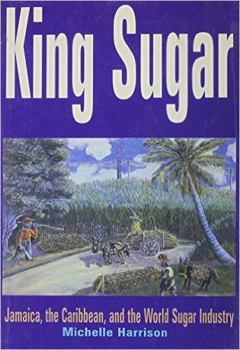King Sugar: Jamaica, the Caribbean and the World Sugar Industry
What is life like on a sugar plantation at the end of the twentieth century? What will happen if the sugar industry collapses? How do the poverty-stricken cane cutters of rural Jamaica fit into the global economy? And how does sugar make its way from the canefield to our kitchens?
The Carribean's history is inseparable from sugar. In Jamaica entire communities depend on the sugar industry, earning a precarious living on old-fashioned plantations. For many the crop even doubles as currency. But as the advanced nations reassess the economic policies that keep sugar alive, time is running out for the island's industry.
King Sugar looks at the world sugar business, identifying the key playersproducers, markets and transnational companiesand explaining how the industry works. It explores the economics and politics of trading agreements, the mysteries of the futures market and the technology of sugar production. Based on interviews with traders, buyers and producers, it provides a unique look at the history of this commodity.
King Sugar also looks in detail at how ordinary people fit into this global industry. Through interviews with workers on a plantation she provides a vivid picture of producers and the crises they face. The book finally assesses the future of sugar, both in Jamaica and the wider world, and considers the options for those still ruled by "King Sugar."





